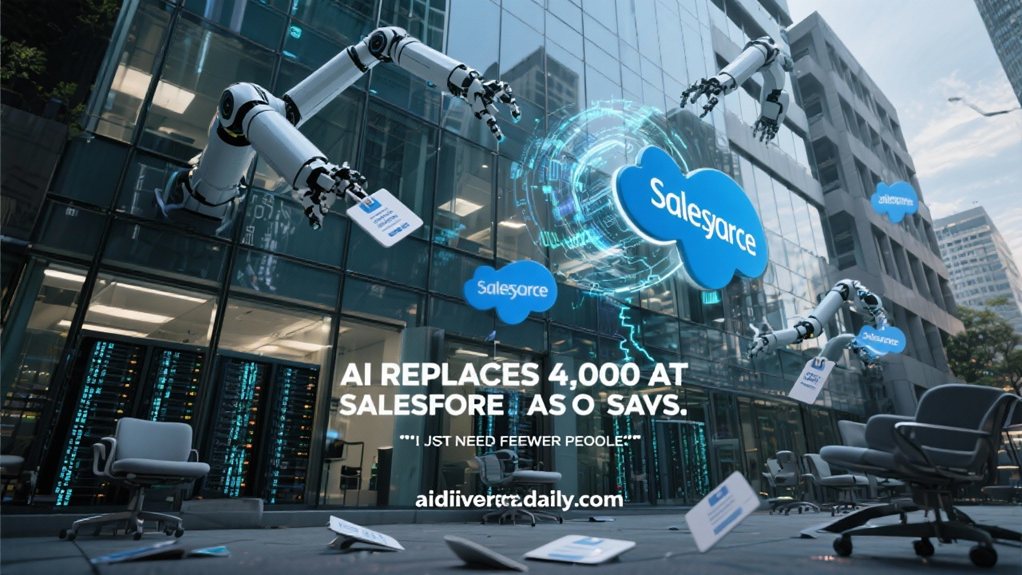The digital companions are here, ready to listen when humans can’t—or won’t. AI chatbots have emerged as 24/7 mental health support tools, offering text-based emotional guidance for those battling anxiety, depression, and other psychological challenges. Platforms like Clare&me in Germany and Limbic Care in the UK provide continuous AI companionship, monitoring user wellbeing and directing them to resources when necessary. No judgment, no appointments. Just type and receive immediate response.
These digital therapists use natural language processing to analyze conversation patterns and personalize advice. They remember your history. They learn your triggers. They adapt. For many, these AI tools serve as the first-access point when professional counseling isn’t available—which, let’s face it, is often. Early research suggests they might even reduce stigma by creating non-judgmental spaces for mental health conversations. While AI systems can process data consistently, genuine empathy remains beyond their capabilities.
But here’s the catch. These chatbots aren’t human. And that matters. Some AI systems actually reinforce stigma around conditions like schizophrenia and alcohol dependence. Worse, certain chatbots fail to recognize suicidal ideation or respond appropriately to delusions, potentially enabling dangerous behavior rather than intervening. With approximately 50% of individuals unable to access traditional therapy services, the widespread use of potentially harmful AI alternatives presents a significant dilemma. Even the newest, most sophisticated models show no significant reduction in harmful biases compared to their predecessors. Tech companies promised progress. They delivered more of the same.
Trust remains a major issue. Only about 31% of surveyed Floridians believe AI tools provide accurate mental health information. A whopping 83% would rather speak to a human professional. Smart move. Therapy fundamentally involves building human relationships and solving interpersonal problems—things AI simply can’t replicate. Not yet. Maybe not ever.
The risks extend beyond inadequate care. Privacy concerns loom large. Data bias persists. And perhaps most troubling, over-reliance on AI companions correlates with increased loneliness. The very tool meant to help might actually hurt. Ironic.
Despite these dangers, AI chatbots continue showing promise in clinical and workplace settings. They help identify mental health issues among medical staff and provide personalized interventions for managing stress and burnout. They’re accessible when humans aren’t. They don’t take vacations or lunch breaks. Some companies have even deployed hybrid human-AI wellbeing chatbots in workplaces to support employees lacking access to traditional counseling services.
The mental health crisis demands solutions. Millions need help now. AI chatbots offer immediate assistance—albeit imperfect. The question isn’t whether we should use them, but how to use them safely. Because they’re not going anywhere.









